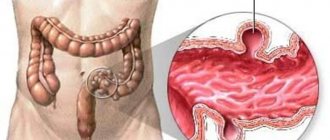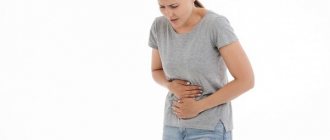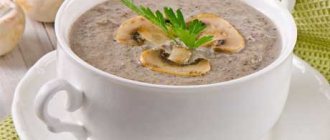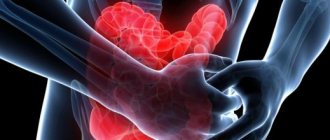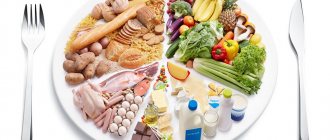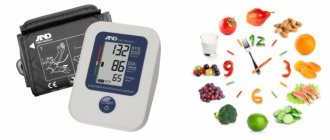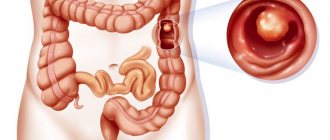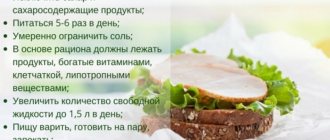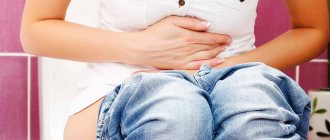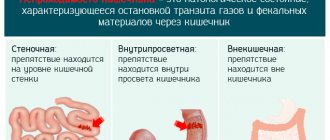Causes
The environment, the state of the body and a person’s lifestyle provoke inflammation, which affects the lining of the colon. The main reasons for the formation of pathology:
- Regular violations of proper nutrition. Irritation of the digestive tract is caused by an abundance of smoked, spicy and fatty foods. The human colon is susceptible to inflammation due to alcohol abuse.
- Malfunctions of the digestive system. Diseases of the liver, pancreas, and acute chronic gastritis are often accompanied by an inflammatory process in the large intestine.
- Infectious diseases. Salmonellosis, staphylococcus, escherichiosis, helminthiasis and other infectious diseases can cause superficial colitis. Infection with parasites occurs through contaminated water and food.
- Taking medications for a long time. Antibiotics and laxatives increase the risk of superficial colitis.
- Consumption of expired food or products unfit for consumption due to violation of storage rules.
- Stress, neuroses, depression and other disorders of the nervous system can lead to an inflammatory process in the colon.
- A lifestyle with minimal physical activity, as well as heredity, are important factors contributing to the development of superficial colitis.
Clinical picture
The acute form of the disease is manifested by severe cramping, stabbing pain. The abdomen is swollen, and upon palpation the patient feels severe pain. These symptoms include severe diarrhea, chills and rumbling in the stomach.
Other symptoms of superficial colitis:
- aching pain that spreads across the entire surface of the peritoneum in front;
- loose stools with mucus and large quantities of water;
- general health worsens, weakness appears;
- appetite decreases;
- body temperature rises;
- against the background of severe diarrhea, dehydration develops;
- the skin loses its elasticity;
- the mouth feels dry.
The inflammatory process in the large intestine is often accompanied by concomitant diseases. Among them are gastritis and enteritis, when the patient is additionally worried about vomiting, nausea, and epigastric pain.
Exacerbations during the development of the chronic stage are manifested by less severe symptoms. Despite this, treatment of any stage of colitis should be strictly under the supervision of a specialist.
Symptoms
The disease becomes chronic if there is a delay in seeing a doctor or refusal of medications prescribed by a doctor. Deviations from the prescribed diet can also lead to a chronic form of pathology.
The superficial appearance of colitis is accompanied by a feeling of fullness in the stomach and abdominal pain. A white, grayish coating appears on the tongue. A person feels unwell and symptoms appear: elevated body temperature, refusal to eat, chills, weakness, dizziness. Diarrhea manifests itself more than 3 times a day.
Dehydration is a symptom that leads to dry mouth, decreased skin elasticity, and a constant feeling of thirst. The initial stage of the pathology occurs very quickly, and the absence of proper therapy will lead to the development of complications - the appearance of malignant tumors. Symptoms of exacerbation in the chronic form of the disease do not appear too pronounced. Any stage of development of the disease is a reason to seek help from a specialist.
https://youtu.be/1e3zc6Tn0_8
Is it possible to drink kefir for superficial colitis?
Whether it is necessary to use kefir for colitis is a controversial issue. Every doctor has his own opinion on this matter. The answer depends on the form of the disease in a person, and what type of colitis the patient has. Kefir is good for the body for any disease. It has an antimicrobial effect and calms the intestinal microflora. The only important nuance is the freshness of kefir. The drink must be drunk within one day from the date of purchase, since microbes form in kefir as a result of storage. Doctors recommend drinking this drink in low-fat form. The kefir treatment method has the right to success if performed correctly. An exception is individual lactose intolerance in the patient’s body. If your stomach tolerates dairy products normally, you should drink kefir twice a day. This way, you can normalize your digestion, even if you have chronic superficial colitis.
Diagnostics
Before starting treatment, the doctor must examine the patient. Initially, the doctor determines the areas affected by inflammation by palpating the abdominal wall. When diagnosing, special attention is paid to symptoms and the health of the digestive organs.
The laboratory conducts tests on stool, urine and blood. Stool samples contain mucus and white blood cells. The therapy is aimed at reducing the production of a substance that corrodes the intestinal walls, thereby destroying the mucous membrane of the organ.
To more accurately determine the location of inflammation, instrumental studies are used. Irrigography is a method that determines the size of the area affected by colitis. Colonoscopy is a test that determines the condition of the colon. Before examinations of this kind, preliminary preparation is required: a cleansing enema, a diet prescribed by a doctor.
Therapeutic methods
To prescribe effective treatment, the doctor must conduct a thorough examination of the patient. Depending on the results obtained, the specialist carries out appropriate therapy.
First of all, it is necessary to eliminate all the causes that became the source of the development of superficial colitis. In addition, therapy necessarily involves adherence to a strict diet .
- Eat often, but in small portions.
- During an exacerbation, it is necessary to eat dishes made from boiled, grated or steamed ingredients.
- Avoid any foods that irritate the intestinal mucosa. From spicy, salty, smoked dishes and alcoholic drinks.
- Cabbage and legumes should not be included in the diet. They cause fermentation in the intestines, thereby aggravating bloating.
- Add low-fat varieties of boiled meat and fish to the menu.
Treatment
Having received the examination results, the doctor decides on treatment tactics. At the first stage, the causes that led to inflammation should be eliminated. A proper diet will help cure the superficial type of colitis. Small meals, avoidance of fried foods, smoked and salty foods.
You should reduce your intake of foods high in fat to a minimum. Avoid alcohol. Give preference to steamed or boiled food.
To avoid fermentation in the intestines and increased gas formation, you should try to avoid cabbage and legumes. Sunflower, corn, mushrooms and whole milk - doctors advise avoiding all this when treating inflammatory conditions in the intestines.
Meat and fish with a low percentage of fat, fruits and vegetables should prevail in the patient's diet.
The daily caloric intake should be kept in the range of 2500 to 3000 kilocalories, maintaining a balance of proteins, fats and carbohydrates. Losing weight when sick is not recommended.
How is superficial colitis treated?
Superficial colitis is treated using both traditional and medicinal methods. The doctor makes the necessary appointment after a detailed examination of the patient and tests. Disputes about the benefits of home treatment have been going on among doctors for a long time. Some consider traditional medicine to be ineffective and adhere only to the traditional method, while other doctors are lenient about treating diseases at home and recommend combining these two types of healing.
Traditional medicine involves treating colitis with quince, flax, grated apples, chamomile, sage and chicory. Patients who prefer home measures notice improvements 2 weeks after the start of the procedures. An important aspect on the path to recovery from superficial colitis is a proper diet. The patient should avoid foods that irritate the intestinal mucosa.
The following harmful substances are isolated for this disease:
- raw vegetables;
- alcohol;
- spicy food;
- grilled meat;
- carbonated drinks.
It is advisable to give preference to foods that are steamed or baked. Doctors recommend consuming large amounts of vitamins and eating small meals. You can eat fruits, berries, juices, cheeses, fish and lean meats in unlimited quantities.
Drug treatment
The prescription of enveloping and astringent agents is mandatory, regardless of the reasons leading to the pathology of the large intestine. If superficial colitis in the intestines occurs due to an infection, the doctor will prescribe etiotropic treatments. Strict adherence to the dosage and duration of medication prescribed by the doctor is necessary.
Restoration of intestinal microflora occurs with the help of probiotics; they are also prescribed during antibiotic treatment.
Symptoms of inflammation will be relieved by antispasmodics and anti-diarrhea medications. If the body is significantly dehydrated, the doctor will prescribe special medications, such as Regidron. Infusion therapy will be prescribed in a particularly difficult situation. To restore the digestive process, medications containing enzymes are used. During the period of exacerbation of the superficial type of colitis, the patient is observed in the hospital.
Classification and types of pathology
The condition of the inflamed intestine depends on the type of disease. A disease such as superficial colitis has several types.
The most common ones are:
- Focal.
- A superficial chronic process that is accompanied by inflammation in the distal intestine.
- Left-handed. The disease develops against the background of inflammation of the rectum. It affects its left sections.
- Infectious. The cause of its development is bacteria in the intestines, which cause an acute inflammatory process.
- Diffuse. The development of pathological processes of a dystrophic nature that can affect the small intestine.
This is a small part of the classification of such intestinal disease. Sometimes it is difficult to diagnose pathological processes; it is necessary to conduct a serious and thorough examination of the intestine, especially its ascending part.
Treatment with folk remedies
The most commonly used herbal infusions are sage, chamomile, centaury. For a glass of boiling water, take 1 teaspoon of these mixtures; after brewing, drink 1 tablespoon after two hours. After a month, the infusion is used in a smaller dosage or the interval between doses of the infusion is increased.
If colitis is accompanied by constipation, you can use the following recipe: take a teaspoon of onion juice, squeezed right before use, three times during the day.
Another remedy is using dried apricots, prunes and figs. Grind 200 grams of each ingredient in a meat grinder, add 50 grams of senna herb and 3 aloe leaves. Mix everything and make 20 balls. Eat a ball every day before bed.
If the symptoms are no longer so pronounced - pain, bloating, attacks of diarrhea go away - therapy has helped. Still, you shouldn’t self-medicate.
To avoid complications, you need to contact a specialist. In order to prevent harm to health, the attending physician must be informed about the folk remedies used.
Superficial intestinal colitis
Damage to the surface layer of the colon mucosa as a result of which an inflammatory process develops, superficial colitis, is one of the most common diseases. This disease is most widespread in the age group from 20 to 60 years for women, and in the age group from 40 to 60 years for men. The reasons for the development of superficial intestinal colitis are very different, but among the main ones we can highlight:
- passion for spicy food, alcohol, lack of vitamins in the diet;
- hereditary predisposition;
- autoimmune diseases;
- uncontrolled use of medications, antibiotics;
- poisoning with toxic substances;
- diseases caused by viruses, infections, parasites;
- nervous disorders, stressful situations.
The disease can occur in an acute form, which, if necessary measures are not taken, becomes chronic. Most often, the development of acute superficial intestinal colitis is promoted by dysenteric forms of microorganisms, salmonella, streptococci, and staphylococci. The danger of colitis lies in the possibility of developing complications and increases the risk of malignant neoplasms in chronic disease.
Prevention
There are a number of simple recommendations on how to protect yourself from such inflammation or avoid its recurrence:
- Compliance with the principles of proper nutrition with control of the balance of proteins, fats and carbohydrates.
- A sedentary lifestyle is contraindicated.
- Regular physical activity is a necessary condition for the prevention of inflammation in the intestines.
- Eating foods that have undergone thorough processing is a simple rule that will help you avoid intestinal infectious diseases.
- Personal hygiene is an important component of preventing infection and inflammatory processes in the intestines.
- Restoration of psychological and emotional state.
- Obligatory observation by a doctor in the presence of diseases of the digestive tract in a chronic form.
What diet should you follow if you have colitis?
- Insoluble fiber is extremely harmful to the stomach. These products include grains, flour products and whole grain baked goods, apples, corn, cabbage and grapes. Insoluble fiber can stick to the colon, which is already inflamed. Such a moment can cause an attack of colitis.
- Soluble fiber, on the contrary, has a positive effect on the stomach. It is present in potatoes, carrots, peeled pears and apples, rice and oatmeal.
- It is recommended to consume fish oil, sea fish and dairy products.
Diet menus for patients with colitis vary. For example, the diet for chronic attacks includes the goal of restoring the motor and sectoral functions of the intestine. Small meals are recommended, 5-6 times a day. You should not eat spicy foods or coarse fiber. Doctors also advise eating beets, carrots, dates, figs and apricots. Fruits are rich in carbohydrates and proteins, which is beneficial for superficial colitis.
Any diet must be agreed with your doctor. The human body is individual, therefore, self-medication can only aggravate the disease. The doctor will prescribe the necessary diet for you, which you will need to adhere to. The right approach to eating can significantly reduce the symptoms of the disease and relieve you of pain.
Reviews
Masha, 25 years old
“In addition to medications, I took sage infusion for colitis. It helped me a lot, the discomfort in the lower intestines and pain subsided.”
Karina 33 years old
“On my grandmother’s advice, I drank chicory. I cured the colitis, but according to the doctor’s prescription I also took antibiotics and Smecta.”
Dasha, 29 years old
“Simultaneously with the pills, during exacerbations of chronic colitis, I drank quince infusion. I don’t know what gave the effect, but everything together helped me.”
Andrey, 35 years old
“I use only folk remedies to treat all problems; I categorically do not accept drug treatment after I fell ill with colitis after taking antibiotics. Together with the diet, herbal infusions helped me.”
Intestinal colitis is a serious gastroenterological pathology that requires medical attention. You cannot get rid of it without using medicine.
Today, pharmacists offer a wide selection of drugs, the use of which will help stop the inflammatory process and normalize digestion.
However, you cannot prescribe them for yourself. Remember that treatment of intestinal colitis should be an exclusively medical matter.
Taking medications is an integral part of such therapy. In this material we will talk about how chronic intestinal colitis is treated with medications, and also consider the most effective drugs (list) with which you can relieve the symptoms of this pathology.
Use of antibiotics
Antibiotics are prescribed if colitis was caused by an intestinal infection. Doctors recommend taking antibacterial drugs precisely in the presence of infection. If the disease has another cause, antibiotics can only harm the intestines and stomach, which will not speed up the healing process.
Three types of infections cause colitis:
- Bacterial infection.
- Parasitic infection.
- Viral infection.
- Colitis is often provoked by salmonella and shigella, then salmonellosis develops and the risk of developing shigella dysentery.
Video - how to restore the body after antibiotics?
https://youtu.be/avhI3fqells
There are two types of antibiotics that are used for colitis: sulfonamides and “broad-spectrum” antibiotics. Sulfonamides are prescribed when the disease is mild to moderate in severity.
If treatment continues for a long time and the patient is prescribed several drugs at once, this provokes dysbiosis - a process when the beneficial microflora of the stomach and intestines is destroyed. In such cases, taking pribiotics and probiotics is indicated.
The following medications are commonly used:
Furazolidone;
- Alpha Normix;
- Tsifran;
- Phthalazol;
- Enterofuril;
- Levomycetil;
- Tetracycline;
- Olethetrin;
- Streptomycin sulfate.
There is an opinion that painkillers themselves provoke gastric colitis (ibuprofen, aspirin, naproxen), since they have a detrimental effect on the stomach and intestines, disrupting the microflora and destroying their very structure. However, their use cannot be avoided due to severe pain.
An approximate list of helpful analgesics:
Loperamide helps because it is an opioid against diarrhea in inflammatory bowel disease. Due to the removal of inflammation, it will decrease.
Many doctors prescribe rectal suppositories because when drugs are taken orally, the level of effectiveness decreases as they end up in the stomach.
Once in the rectum, the active ingredients are quickly absorbed and do not lose their effectiveness.
The use of painkillers and antibiotics, especially after long-term treatment, threatens dysbacteriosis. To return the stomach and intestines to a healthy state, it is strictly necessary to take probiotic products that will restore the bacterial level.
You can use the following tools:
Colitis constantly causes spasms and pain that you cannot get used to. Some spasms continue after successful therapy. This is caused by the conditioned reflex action of the gastrointestinal tract, when contraction occurs “out of habit.”
To normalize the gastrointestinal tract system and not worry about it, use the following drugs from the group of prokinetics and antispasmodics:

